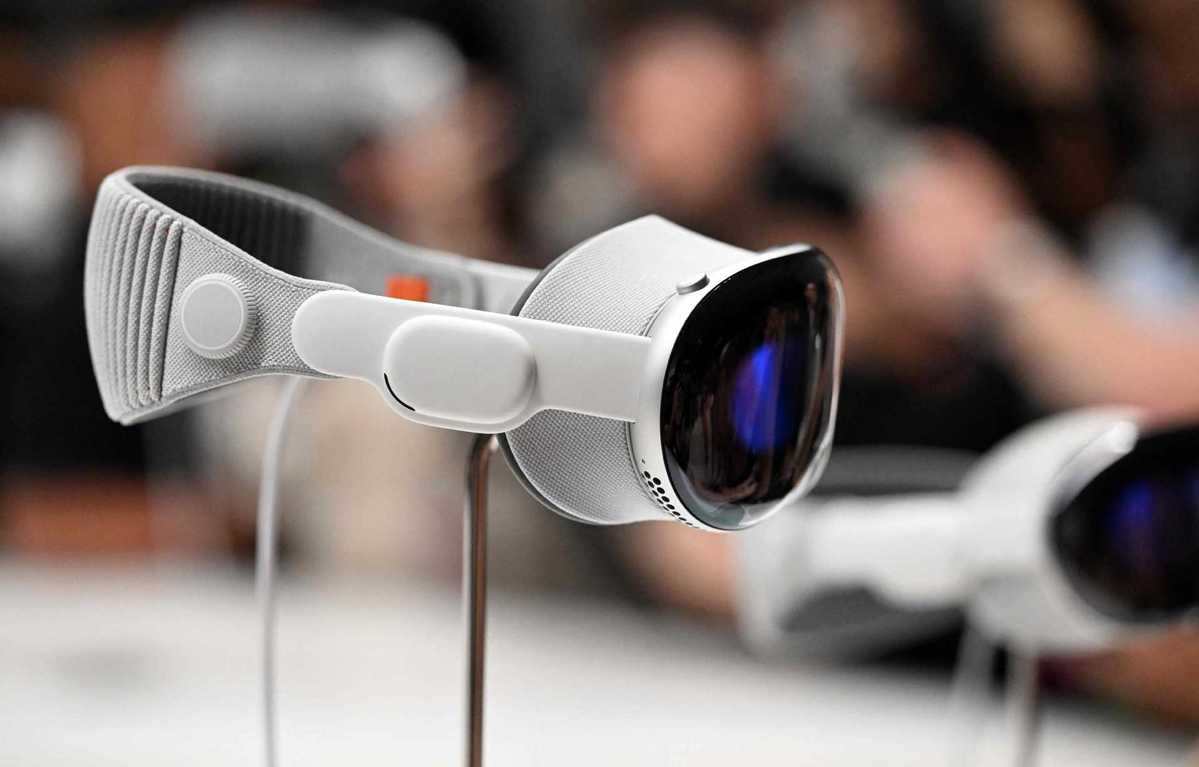
CUPERTINO - Apple Inc barged into Meta's metaverse party on Monday, unveiling an augmented-reality headset called the Vision Pro, its riskiest and biggest bet since the introduction of the iPhone.
Vision Pro will start at $3,499, more than three times the cost of the priciest headset in Meta's line of mixed and virtual reality devices that currently dominate the AR/VR market.
Apple's headset will be available early next year in the US with more countries coming later in 2024.
Apple also unveiled a raft of new products and features, including a 15-inch MacBook Air, a powerful chip called M2 Ultra, improvements to its iOS software and autocorrect feature.
Apple did not make any major announcements about generative AI products similar to ChatGPT or Google's Bard search engine, but it quietly imbued several smaller features with AI, like live transcriptions of voice mails.
Apple said that users of the Vision Pro will be able to select content inside the goggles with their eyes, tap their fingers together to click and gently flick to scroll, while also using a three-dimensional camera and microphone system to capture videos and pictures than can be viewed in 3D later.
In its most striking difference from Meta's headsets, the device also has an exterior display that shows the user's eyes to people in the outside world.
The exterior screen goes dark when a user is fully immersed in a virtual world. When a person approaches a user who is in full virtual mode, the headset will show both the user and the outside person to each other.
"You're never isolated from people around you," said Apple's human interface chief Alan Dye. "You can see them, and they can see you."
The Vision Pro has two hours of use with an external battery, which Apple said would reduce the weight on the user's head. However, the device must be plugged into the wall or battery pack and there is no standalone use.
Meta's top of the line Quest Pro mixed reality device, which blends virtual reality with a video feed of the real world, offers about two hours of battery life directly on the headset, without an external battery pack.
"It's the first Apple product you look through, not at," Apple CEO Tim Cook said.
Shares of the iPhone maker rose 2% to hit a record high of $184.95 ahead of the launch but shares were flat to slightly lower after the announcement.
The headset uses a new chip called R1, which is designed to process information from its sensors in less time than the blink of an eye.
For work uses, Apple showed how the headset can be used with a trackpad and keyboard to work like a traditional computer with multiple displays.
Apple says it has been working with Adobe and Microsoft to put their apps on the new headset, as well as Unity, a technology company that works with game developers. Unity shares surged more than 14% after the announcement.
Walt Disney's Disney+ streaming service will be available on day one on the device.
Investors and tech fans alike are focused on how much Apple's view of the virtual reality market overlaps with Meta's. Meta Chief Executive Mark Zuckerberg has outlined his vision for using headsets to dip in and out of a "metaverse" where people can meet virtually to work, play and spend.
In addition to Meta, Sony Group Corp and ByteDance-owned Pico both recently released virtual reality devices.
Research firm IDC said companies sold a total of 8.8 million headsets last year.
APPLE UPDATES MACS
Apple also announced a 15-inch MacBook Air powered by an Apple-designed M2 processor chip. The laptop with six speakers will start at $1,299 and be available next week. The 13-inch MacBook Air will drop to $1,099.
Apple also introduced a new version of the Mac Pro, its highest-performing desktop, with an M2 Ultra chip and a price tag starting at $6,999.
Until Monday, the Mac Pro was the last computer in Apple's lineup that still used an Intel chip. Intel fell 3.9% after Apple dropped its chips from its most powerful desktop.
"For PC users, there's never been a better time to switch to a Mac," said John Ternus, Apple's senior vice president of hardware engineering.
The updates combine improvements to high-end machines aimed at the developer crowd at Monday's event with tweaks to messaging and a new Mac Air aimed at a much broader group of customers, including potential switchers to Apple.
Apple introduced small improvements to its iOS software, some aimed at small annoyances like a "NameDrop" feature to more easily share contact information and others focused on safety and security, like a check-in feature to tell contacts when a user has arrived safely at a destination.
Apple said that it was improving the autocorrect feature on iPhone keyboards.
"In those moments where you just want to type a ducking word, well, the keyboard will learn it, too," said Craig Federighi, Apple's software chief. Apple is famous for autocorrecting a common expletive to "ducking".
Reuters

